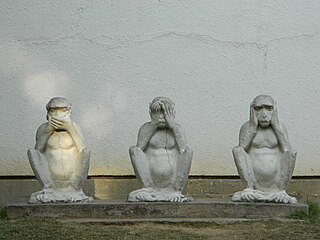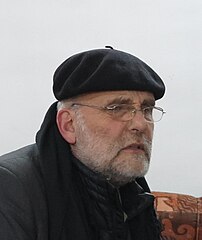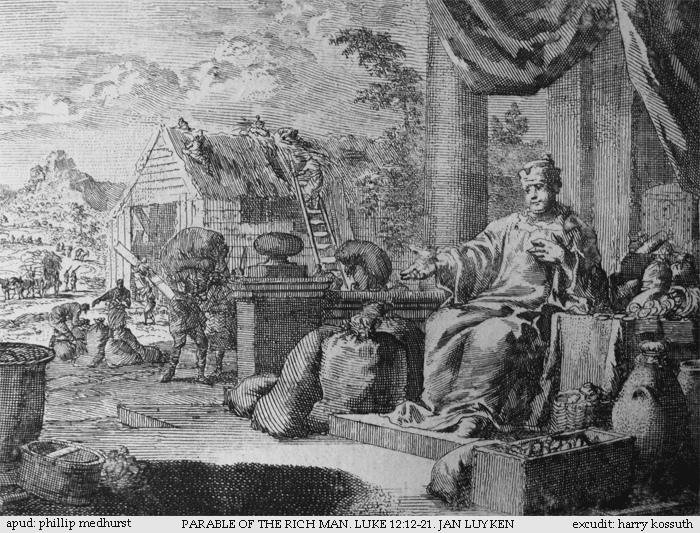Personal Touch
19th Sunday of the Year (11 Aug 2013)
Homily of Fr. Paul Panaretos, S.J.
Each Easter Vigil we prepare the paschal candle. It symbolizes Messiah Jesus, who has come and who will come again. Priests trace the inscription on the paschal candle, saying: Jesus Christ, yesterday and today, the beginning and the end, the Alpha and the Omega; all time belongs to him and all ages; to him be glory and power through every age and forever.1 That sentence voices faith in Jesus: the Word, who creates all things and to whom all time belongs, entered human history, God-with-us. By time we don’t mean some mystical measure or a calendar for convenience. All time means past, present and future with all created things. Jesus is Lord of history and all within it.
 The visible paschal candle assures us Messiah Jesus, though unseen, accompanies us daily. Jesus’ presence also shapes us to expect his return. At mass we acknowledge we expect Jesus’ return in glory. One way is by our Amen closing the priest’s words after the Lord’s Prayer, which include: as we await the blessed hope and the coming of our Savior, Jesus Christ. Heard often they fly by our ears. Those words link us to Jesus, whom we await.
The visible paschal candle assures us Messiah Jesus, though unseen, accompanies us daily. Jesus’ presence also shapes us to expect his return. At mass we acknowledge we expect Jesus’ return in glory. One way is by our Amen closing the priest’s words after the Lord’s Prayer, which include: as we await the blessed hope and the coming of our Savior, Jesus Christ. Heard often they fly by our ears. Those words link us to Jesus, whom we await.
The Second Vatican Council reminded us that the expectation of the blessed hope and of the coming of the Lord is part of the mystery of Messiah Jesus as is his incarnation and birth,[his life] until the ascension [and] the day of Pentecost.2 We celebrate them and other aspects of the Christian mystery here; we read them on the pages of sacred scripture. You and I write them on the sacred pages of life when we are alert and ready to act on every opportunity to do our Messiah’s work. To that the gospel pointed. It did not spell out what being alert and ready to act look like in detail.
Though we have no recipe for action, we have gifts to guide us. We have Jesus, the greatest gift. To be in relationship with him is God’s gift. To continue his work of care and reconciliation is God’s gift. To live our experience of God caring for and reconciling us is possible because of Jesus’ self-gift, the eucharist we share here. Our Christian mystery deepens more: as we respond to Jesus and his self-gift, our response to him turns us to others. Pope Francis named that gift: “When you meet with the one in greater need, your heart will begin to enlarge, to enlarge, to enlarge!”3
Extending ourselves and our resources to others draws us closer to Jesus. He is, in the words of his parable, our master whose return we await. We are stewards of his mystery. Jesus peopled his parable with key players in ancient Mediterranean households. The steward was the one “to whom the head of the house...entrusted the management of his affairs, the care of receipts and expenditures, and the duty of dealing out the proper portion to every servant and even to the children not yet of age.”4
Stewards not only kept track of accounts and supplies. Stewards knew the members of the households they served. Mediterranean households outnumbered our largest extended families. That meant a steward’s knowledge was personal and not just a knack for figures. Relationship figured large in a faithful and prudent steward. It’s no wonder early in the church’s history the Greek word for steward was used for a preacher of the gospel.5
Jesus’ parable describes our Christian life: you and I preach the gospel with a personal touch, to use a familiar phrase. Because we await the blessed hope and the coming of our Savior, we deepen our relationships with Jesus; as our relationships with Jesus deepen, we are freer to share our gifts with others, especially those vulnerable and in need; our sharing helps others meet Jesus. Money, power and influence aid preaching the gospel with a personal touch; none is an end in itself. Stewardship of our homes, parish, diocese and community confirm that.
In your daily 15 minutes with Jesus this week
- Begin by noticing ways the Trinity blesses you.
- Ask St. Peter to present you to Jesus.
- Chat with Jesus: praise Jesus for being your companion, who creates and redeems you; thank him for choosing you to be a steward of his mystery.
- Ask him to confirm your faith in his presence as well as in his return to complete what Jesus has begun in you.
- Close saying slowly the Lord’s Prayer. His words, your kingdom come, on our lips point to a future which is becoming present. Jesus announced the reign of God is at hand6 and among us.7 Jesus chooses us to join him and spread his gospel with a personal touch.
_____________
- Roman Missal. Preparing the Candle begins each Easter Vigil.
- That Council’s Constitution on the Sacred Liturgy, 102.
- His video message to his fellow Argentines on the 07 August Memorial of St. Cajetan. text of message
- Entry for economos [Greek, οικονομος] in Thayer’s Lexicon, online version.
- Strong’s Lexicon at 3623, online version.
- Matthew 4.17; 10.7 (instruction to his disciples and us); Mark 1.15.
- Luke 17.21.
________________________________________________________________




_winning_a_preliminary_heat_in_the_womens_100_metres_race_at_the_VIIIth_Summer_Olympic_Games.jpg)
_-_James_Tissot.jpg/256px-Brooklyn_Museum_-_Christ_Retreats_to_the_Mountain_at_Night_(J%C3%A9sus_se_retira_la_nuit_sur_la_montagne)_-_James_Tissot.jpg)





_-_James_Tissot.jpg)



_-_Cappella_di_Sant%E2%80%99Ignazio_1.JPG/320px-La_Storta_(Roma)_-_Cappella_di_Sant%E2%80%99Ignazio_1.JPG)



.jpg)